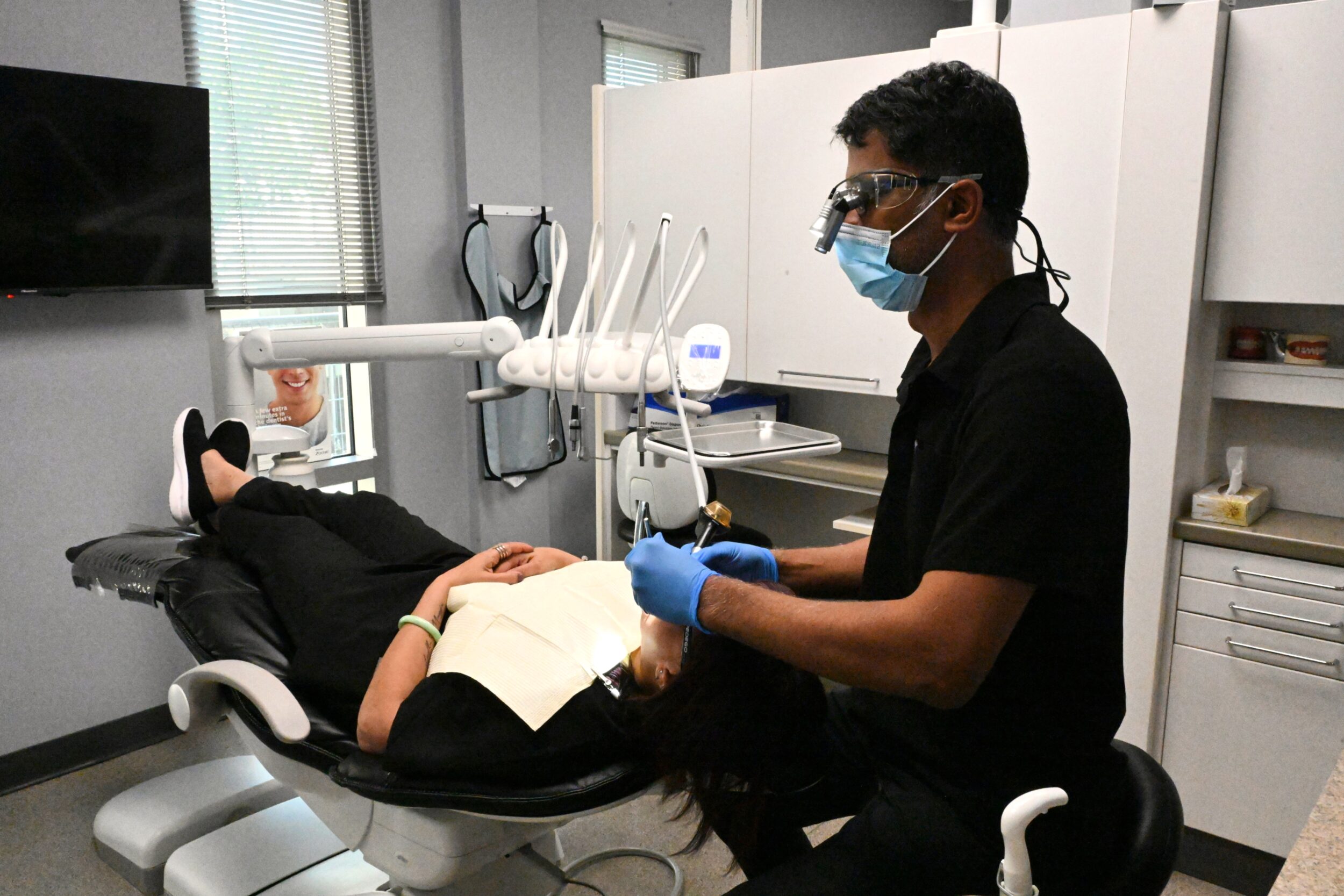Prosthodontics in calgary, AB
There are a number of specialties in dentistry, but prosthodontics is one of them. It deals with diagnosing, planning and executing restorative and cosmetic dentistry treatments. A dentist who chooses to specialize in prosthodontics must complete three or four more years of specialized training following graduation from dental school.
Prosthodontists, in essence, are architects, who formulate a comprehensive treatment plan and inform the patient of the possibilities that can be achieved through treatment. It is extremely detrimental to one’s self-esteem and self-confidence when one has missing or defective teeth. Using the latest technology, a prosthodontist is able to fill these gaps with functional, natural-looking teeth that enhance the smile and increase confidence.
A prosthodontist may be consulted for a variety of reasons, including (but not limited to):
- Creating partial or complete dentures.
- Looking to whiten your teeth or make your smile more attractive.
- Filling in gaps left by missing teeth.
- Interest in dental implants.

In what ways can the Prosthodontist help you?
A prosthodontic treatment should be functional, long lasting, and pleasing to the eye. It is only possible to perform these procedures on teeth that are in generally good health. It is essential to address issues such as gum disease before beginning prosthodontic treatment.
In the field of prosthodontics, a variety of high-tech treatments are available, including:
Dental Implants – Dental implants are designed to replace natural teeth as effectively as possible. Roots made from titanium are implanted into the jawbone in the same manner as natural tooth roots. There is no difference between natural teeth and implants in the way they look and feel.
Dental Veneers – A veneer is a thin piece of porcelain or ceramic that is bonded to the front surface of the tooth. With veneers, problems such as uneven teeth, stained teeth, chips and damage caused by general wear and tear can be instantly remedied.
Dental Crowns – Porcelain, metal or a combination of the two is the most common material used for prosthetic crowns. A crown can last for up to a decade, and possibly even longer, since they are designed to mimic the natural crown (surface of the tooth).
Dental Bridges – There are two types of bridges used to support a prosthetic tooth, conventional bridges and cantilever bridges. The bridge may be supported by the natural teeth, or dental implants may be used as anchors if the natural teeth are in good condition.
Complete Dentures – If you have lost all of your teeth due to gum disease or trauma, a full set of dentures can be created for you. It is possible to chew and speak more easily with complete dentures because they restore the functionality of the mouth.
Partial Dentures – A removable or fixed partial denture can prove to be an excellent option for patients who have lost many teeth. Additionally, they improve the ability to chew as well as the aesthetics of the smile.
Are there any other problems that a prosthodontist can treat?
Prosthodontists are also adept at treating problems with the jaw (TMJ), alleviating severe snoring, managing sleep apnea, and reconstructing teeth after treatment for oral cancer. To ensure the best possible restorative results, prosthodontists usually work together with other dental health professionals to guarantee the best possible results.
You should consult your prosthodontist if you have any questions or concerns about prosthodontics.